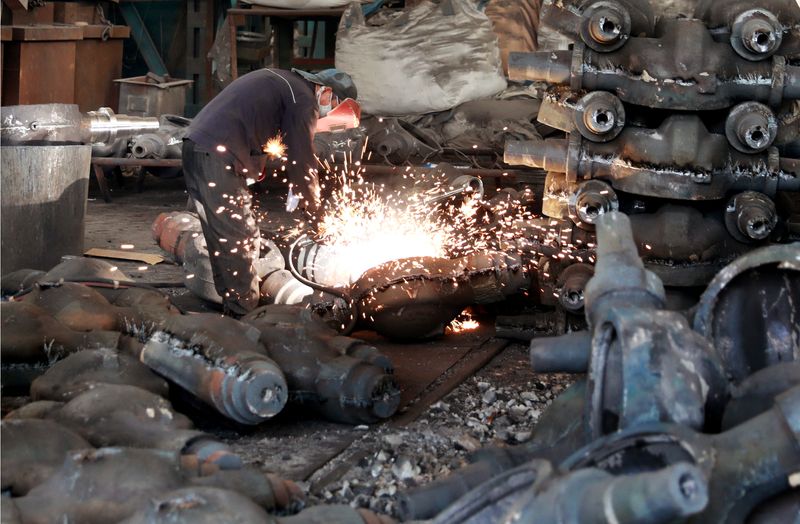BEIJING (Reuters) - China's factory activity expanded at the fastest pace in five months in November as new orders, including those from abroad, led to a solid rise in production, pushing manufacturers' optimism degree to an eight-month high, a private-sector survey showed on Monday.
The reading largely echoed an official survey on Saturday, which showed manufacturing activity expanded modestly, suggesting a blitz of stimulus is finally trickling through the world's second-largest economy just as Donald Trump ramps up his trade threats.
The Caixin/S&P Global manufacturing PMI rose to 51.5 in November from 50.3 the previous month, the highest since June and beating analysts' forecasts in a Reuters poll of 50.5.
New orders placed with Chinese manufacturers increased at the fastest rate since Feb. 2023.
New export orders, in particular, rose for the first time in four months and marked the highest in seven months. The orders mainly rose in the investment and intermediate goods segments and fell fractionally for consumer goods makers.
Anecdotal evidence revealed that better underlying demand, new product launches and stockpiling following the U.S. election were among the reasons for the rise in new work.
President-elect Trump last week pledged an additional 10% tariff on imports from China. He had previously threatened to end China's most-favoured-nation trading status and slap tariffs on Chinese imports in excess of 60% - much higher than those imposed during his first term.
China's commerce ministry said Beijing's position against unilateral tariff hikes is consistent, and "imposing arbitrary tariffs on trading partners will not solve America's own problems."
As Chinese firms signalled hopes that better economic conditions and government policies can support sales in the year ahead, the level of their confidence hit the highest since March, the Caixin survey showed.
Despite a second successive month of accumulation of backlogged work, firms remained cautious about hiring, though the rate of job shedding eased from October.
"While the economic downturn appears to be bottoming out, it needs further consolidation," said Wang Zhe, economist at Caixin Insight Group.
Citing the continued contraction of employment, Wang said it indicated the effect of economic stimulus is yet to be felt in the labour market, and businesses' confidence in expanding their workforce needs to be strengthened.

Cost concerns also rose as average input prices increased at the fastest pace in five months with rising raw material costs. In turn, firms passed additional cost burdens to clients, leading to the quickest growth in selling prices since October 2023.
As a deep property downturn and tepid domestic demand weigh on economic growth momentum, government advisers are recommending Beijing maintain an economic growth target of around 5.0% for 2025, Reuters reported previously. Markets expect stronger fiscal stimulus to mitigate the impact of expected U.S. tariff hikes on Chinese exports.